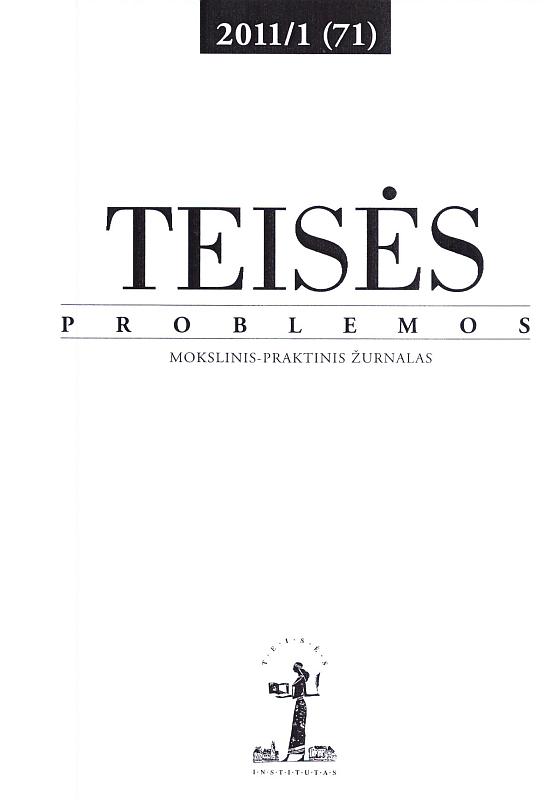Uždarosios akcinės bendrovės akcininkų sutarties teisinė kvalifikacija
Qualification of Closed Stock Company Shareholders' Agreement
Author(s): Lina MikalonienėSubject(s): Law, Constitution, Jurisprudence, Commercial Law
Published by: Lietuvos teisės institutas
Summary/Abstract: Shareholders’ agreement is one of the ways to protect shareholders’ investments made into closed stock companies. There is no readily available market for such companies’ shares, therefore seeking effective company’s management as well as return on investments in different forms, shareholders collaborate concluding shareholders’ agreements. Value of shareholders’ agreement is also obvious in the course of shareholders’ disputes, when its offers some contractual settlement measures in addition to the ex lege safeguards. Even though shareholders’ agreements play a great role in the commercial practice and closed stock companies are dominant in the Lithuanian enterprises’ landscape, such kind of agreements have not been of major interest for the Lithuanian scholars. This article explores the core legal aspects of shareholders’ agreements in closed stock companies and presents its classification in the Lithuanian contract law. There are noted the following specific aspects of shareholders’ agreement: purpose of the agreement, contract parties and its subject-matter. First, mixed purpose is a special characteristic of shareholders’ agreement. The main purpose of the agreement relates to each shareholder‘s target for return on investments in different forms. While the auxiliary purpose of the agreement is to be considered a joint shareholders’ target to cooperate in order to ensure more effective management of the company and its activity. This auxiliary purpose stipulates the return on investments. Second, only shareholders are parties to the agreement. Third, subject-matter of shareholders’ agreement includes arrangement for implementation of shareholders’ as company members‘ rights, both in active or passive form. As a rule, shareholders’ agreements include issues on management of the company, shareholders’ composition as well as other arrangements on shareholders’ rights implementation (shareholder’s employment, non-competition, etc.). Main features of shareholders’ agreement and partnership agreement are also compared in the article concluding that shareholders’ agreement should not be per se treated a sort of partnership agreement. Shareholders’ agreement in essence being governed by general contract law should be qualified as sui generis specific contract based on cooperation principles. Also, shareholders’ agreement may be often considered of a personal nature.
Journal: Teisės problemos
- Issue Year: 2011
- Issue No: 71 (1)
- Page Range: 5-28
- Page Count: 24
- Language: Lithuanian

